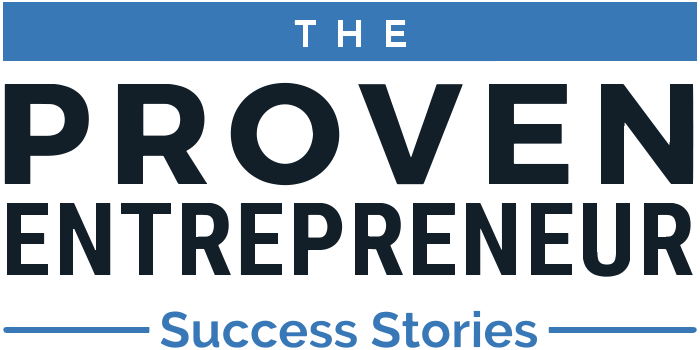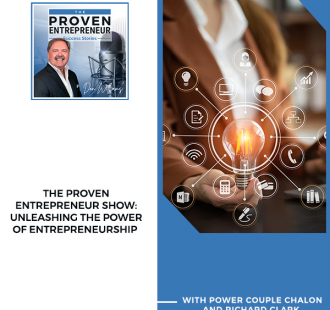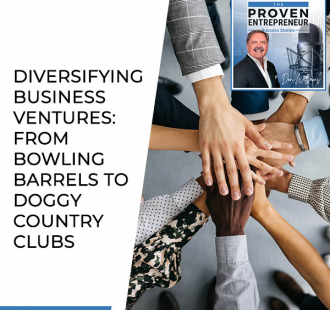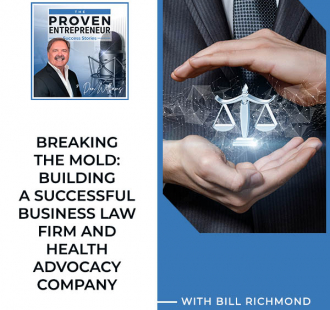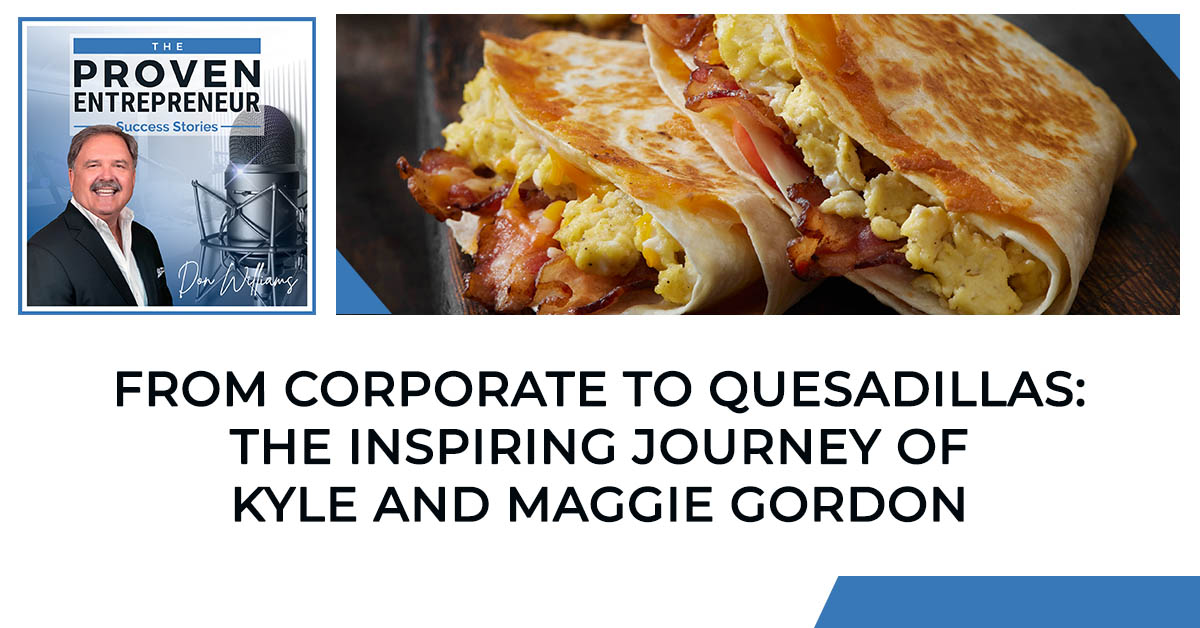
Entrepreneurial success is not just about turning passion into profit; it’s about embracing challenges, seizing opportunities, and nurturing both your business and personal partnerships with unwavering determination. Hey there, it’s Don Williams, and get ready to be blown away! Today, we have the dynamic duo behind Dillas Quesadillas, Kyle Gordon and Maggie Gordon, two entrepreneurial powerhouses celebrating their business’s 10th anniversary. Their story starts from the bottom, as Kyle spent seven years honing his skills at Raising Canes, setting the stage for the future. But building a thriving business comes with its fair share of challenges, and we’ll explore the blood, sweat, and tears they poured into making their dreams a reality. The moment Dillas Quesadillas was born is a tale of passion meeting opportunity. Inspired by the fast-casual trend and their love for Chipotle, they seized the moment to create a unique and thriving business. If you’re itching for inspiration, ready to elevate your business game, and eager to learn from seasoned entrepreneurs, this episode is a must-listen. Tune in now and make your entrepreneurial dreams a reality!
Topics discussed include:
- Childhood Influences and exposure to Entrepreneurship
- Starting from the bottom and gaining experience in the restaurant industry
- Financial challenges and the importance of proper financial planning
- The dynamics of being a couple entrepreneur and maintaining a successful relationship
- The power of seeking advice and assistance
- Balancing each other’s strengths and maintaining open communication
- Taking risks and pursuing one’s passions
- Learning from mistakes and staying committed to goals
Entities mentioned throughout the episode include:
- Dillas Quesadillas: Kyle and Maggie’s successful business
- Raising Canes: A company where Kyle gained experience and honed his entrepreneurial skills
Join Don Williams and the Gordons as they share valuable insights, personal stories, and wisdom gained from their journey as entrepreneurs. Whether you’re a seasoned entrepreneur or someone looking to start their own venture, this episode is a must-listen. Tune in to gain inspiration, learn from their experiences, and discover the keys to success in the business world.
For information on how to work with Don visit Work With Don Williams
You can also reach out to Don Williams at https://donwilliamsglobal.com
Please join Don and his businesses in support of St. Jude’s Children Research Hospital in its Mission to cure Childhood Cancers. You can donate to St. Jude at stjude.org/donate
—
Watch the episode here
Listen to the podcast here
From Corporate To Quesadillas: The Inspiring Journey Of Kyle And Maggie Gordon
I got a power couple with us, Kyle and Maggie Gordon. Kyle, I got to tell you, I love me some quesadillas.
It’s our specialty.
Welcome to the show.
Thank you.
Tell me, what is getting your time as an entrepreneur now? What’s your business?
Our business is Dillas Quesadillas. Right now, it’s all about scale for us. We are growing the business, opening the locations, and going through all the trials and tribulations of getting over the big hump.
All locations here in Dallas?
We’ve got 4 corporate stores here in Dallas and then we’ve got 3 franchise locations in Louisiana. We’ve got lots more in the pipeline. As Kyle said, there’s a little scoop coming up for us to get growing big. Yes, we’ve got seven total right now.
I want to take you back to your childhoods, all the way to age 5 up through 18. In the household where you were raised, was there an entrepreneur? Did someone set that example? Where did you embark on this craziness all on your own?
Yes, I did have an entrepreneur. My dad started a couple of different companies. He got an Engineering degree out of A&M and went into fire alarm and security with Honeywell, a big company, and then stepped out and did his own with a couple of buddies from college. They grew that pretty rapidly and quickly sold it for a really big exit.
Times were good in the family, and he started a new business and went into oil and gas, which was what his family had done their whole lives. He’s from Houston. My grandfather had his own oil and gas company, so that was the next step for him. Many entrepreneur venues through my family. My mom’s side of the family started a large food service business way back in the day that grew to a national brand. Lots of entrepreneurship in my background.
One of the interesting thing you talked about your dad having an Engineering degree is when you look at billionaires around the world, the largest training group are, in fact, engineers. Kyle, in your childhood, was there an entrepreneur in or around the house?
Yes. My dad was an entrepreneur. It’s a similar story to Maggie’s dad. He was at Sears Roebuck and ran a department. He was a manager-type guy for them. If you know my dad, his name is Greg, very gregarious guy with lots of energy, a natural salesman type of guy. He just said, “There’s an opportunity for me to do something similar to where Sears is missing the mark here.”
He opened what ended up being Texas Horticultural Resources, which was a plant horticultural brokerage that bought from warehouses and greenhouses and sold to places like Albertson’s and Walmart throughout the Southwest. He did that all the way through high school for me. He got out of that business and started building custom homes. We both worked for our dads, of course, because they’re entrepreneurs. We got to do the kid work for dad’s company in the summer.
The Pendulum was the big training ground for me, though, because I did get to see the goods and the bads. When 2001 happened, his business and the grocery business went real sideways. He had to pivot and get into this home-building thing. He didn’t have a big exit or anything. He was like, “I had my heyday in this business. I need to get out of this and get into something else.” That’s when he went down a different path and direction that took him in a whole new way. He was able to apply what he had learned to that new business and grow that.
Yes. It’s very common in entrepreneurship. People from the outside looking in say, “It’s all sunshine and rainbows and unicorns.” It’s actually not. There’s as much downside as upside, for the most part. After your childhood, what next? Went to university, we backpacked across Europe, we lived on the beach. What’s your story?
I had the idea for Dillas in college, and so coming out of high school, I went to the University of Texas. Pretty much right away, I identified that I was not going to be a good student. I wasn’t a good student in high school. I was a middling 2.0 type of guy in college.
It sounds like an entrepreneur.
Most of my time was spent in class, thinking there was a place. Chipotle was just new on the scene. I was like, “I love this idea, this new fast-casual thing that is emerging right now.” That’s where the idea for Dillas came from. I said, “I’m going to do this but with quesadillas.” The ideation process for my business happened in college. I met Maggie there as well. She helped me with the concept. She knew about it almost immediately after we met. I got through, it took me five years, and I stayed as long as I could. I’ll tell you the story out of college after my turn comes back around.
I was actually dancing at the end of high school. I continued dancing in college and went to a very small town college, Kilgore Junior College, for two years. I danced there. I then went to the University of Texas, where I met Kyle. I was there for a couple of years. I went in with a Business major and then I had an advisor that missed the mark on my transfer and told me to take a macro class when I was supposed to take a micro class. When I got there, they were like, “You’re not in the business school anymore.”
I had to divert quickly and went to Liberal Arts for a semester and then I switched over to an Advertising degree. I got out of advertising school and did PR. I ended up with that. I did a business foundations program at Texas, which was a new thing then. It was a little bit of every piece of the business school, so you had to do the 101 and the 102 of every facet of business. The certification was more than a minor sort of thing, but a very well-rounded look at business.
She glazed over the part that she is a straight-A student and I’m not. She didn’t bring up her GPA.
Did you start Dillas right out of college?
Almost. In college, I had the idea. Maggie’s uncle was in the business. He was the president or CEO of a company, Bob Evans, up in Ohio. I brought him the idea and I said, “I want to do this quesadillas-only place.” He’s like, “Great, get a job. You need to see if you got ketchup in your veins. You need to see if you want to do this.” He introduced me and got me an interview for a service manager position at Raising Cane’s. Raising Cane’s, at this time, had 25 restaurants. Now, they’ve got 650. This was back in that time.
He was like, “I’ll get you an interview and you can try to see if you can run a chicken finger business and then we’ll talk about Dillas.” That is what I did. I started getting really focused on the 10,000 hours aspect of what I wanted to do. I said, “On their dime, I’m going to go learn how to be the best restaurant operator I possibly can.” That’s what I spent the first seven years out of college doing. I was going as fast and as high up at Cane’s as I could before I left.
Those were some hard years. We were right out of college, and he was making $12.50 an hour with a university degree, but it was to pursue his passion.
I showed up with a gold tie to this fried chicken finger interview. It was pretty legendary. The district manager came around with grease all over his shirt and he was like, “What are you here for?” I’m like, “I’m here for the management position,” but I got the job. It was good to dress up for the job. I started doing that.
I moved up really fast too. I got lots of opportunities there. I was a manager making $12.50 and then four months later, a general manager and a managing partner a couple of years later. After that managing partner, that was year six. We had moved from Austin up to Dallas at this point because that’s where the Raising Cane’s were. Maggie’s also from here and I’m from Austin.
At that point, it was like, “Are we going to continue down the road of this corporate lifestyle and go open more Raising Cane’s and pursue their growth?” They were going from 75 to 600 in the next 10 years. That would’ve been a hell of a ride too. We’re like, “Let’s try to get a little bit of money together. I had a little earn out from Cane’s. Let’s dump that into Dillas.” We opened literally 100 yards from my Raising Cane’s in an old Jack in the Box. The same parking lot.
My mom’s family was the one that was part of the big company. It was Owen’s Country Sausage and merged with Bob Evans in the ‘80s. My uncle from our side of the family went on to be the president and CEO of Bob Evans.
He stuck around after the merger and moved up to Ohio as part of that thing.
What sound counsel for a young man, telling him, “Get a job and go start where you’re at. Start ugly. You can’t start where you want to start. Just start here.” You did, and good things began to happen. Your talent showed, and they saw it and you were off to the races. A foot in the door. That was very wise counsel. So many times, people from the outside look and say overnight success and you’re like,, “Do you remember when we got married and we were fresh out of college and I was making $12.50 an hour?” That wasn’t quite maybe as overnight as it appears. That’s great. Let me ask you this. You’ve been an entrepreneur for how long now?
Start ugly. You can't start where you want to start. Just start here. Click To TweetSince 2012.
Looking back, I’m looking for a hard moment. Something that happened and typically, people are like, “How much time do I have? I got a lot of hard moments.” I’m just looking for one. A hard moment, something that happened is like, “That hurts. I don’t like it. Scares me a little bit, I’m not really sure how this is going to end,” but maybe in retrospect, looking back, it actually was something very positive for you. Do you have a hard moment you can share?
I’ve got one in mind. One of my most vulnerable moments, and I remember it pretty vividly because I had just joined EO, Entrepreneurs Organization, and this is 2018. It was about four years after we had our first restaurant. We had our first one and then we had our second one, and this is our third one. The moment came one morning when I woke up. I was like, “We don’t have the money to pay this $100,000 bill. how stupid of me.” I started feeling all this guilt and this anxiety and like, “What’s my banker going to say? Where’s my money going to come from? How are we going to get through this moment?” We’re able to figure it out.
Some things didn’t come due just in time. We were able to move some money around and get through this. The lesson that I learned was make sure you’ve got the capital. Be able to write the checks that you say you can write. It was also very important to me to get involved with the details of the financing piece of it.
It’s not just going to come from fairytale and magic. It’s not always going to work out. It’s not always going to be the perfect timing and, “I thought I had this much,” and then, “I missed this, this and this detail.” I’m much more prepared now going into the investment piece of a new deal, where I’m like, “Contingency number 1, contingency number 2, contingency number 3.”
If something happens, if something doesn’t deliver on time, do we have the financial well-being to back this up to find another resource to find a different investor or anything else? That was a really big early CEO-level lesson that I got smacked in the face with that woke me up. I was like, “This is real. These are all real players.” I’m just this 34-year-old playing in their game and I need to get serious and grow up really fast. That was my hard story.
That’s a pretty good hard moment and a really good lesson. I’ve been an entrepreneur many years now, and what doesn’t kill you makes you better make stronger, even though it can be a little painful at the time.
It’s funny because that was also my hard moment, but I have a different learning out of it. I sit on the other side. I am the details finance person. I’m looking at every penny and being like, “I don’t know if this is going to work.” It was scary when I’m like, “Kyle, we don’t have the money and we’re not going to be able to pay these bills.” It was a lot of anxiety. A lot of late-night talks and crazy times.
We did make it work, but my takeaway is sometimes I have to trust in his vision a little bit more. I can be the worry wart and the overthinking everything. We still play this out now. We’ve got a new location we’re talking about right now and now he gets a little bit analytical about and I’m like, “Remember it’s going to be fine. It’s going to be there.” We have to balance each other and wear both sides of the hat a little bit sometimes, but it’s a good balance.
We are a good yin and yang. We didn’t introduce that necessarily, but I’m very visionary and she’s very integrator. People all the time are like, “How the hell do you all do this?” We’re together all the time and then you drive in the same car and go home, and then you’re together all the time there too. I’m like, “Yes. It’s just two different things.” At work, she’s over here and I’m over here doing all these verticals and she’s doing all these and when we do meet in the middle, it’s collaborative. We’re focused on the same thing that we want to accomplish. It works because we are opposites in the business world.
There are so many stories of things that we screwed up and did wrong. We still do wrong. We incorporated wrong, which was probably a $20,000 accounting mistake, and had to unwind the S-corp and the trying to save money. It ends up costing you a quadruple. You’re like, “What was I thinking? Why didn’t I get an accountant buddy to at least take a look at this?” Those are the lessons that you learn along the way that are hard mistakes. They make you better.
Many entrepreneurs learn that lesson the hardest of just ask for help. People know.
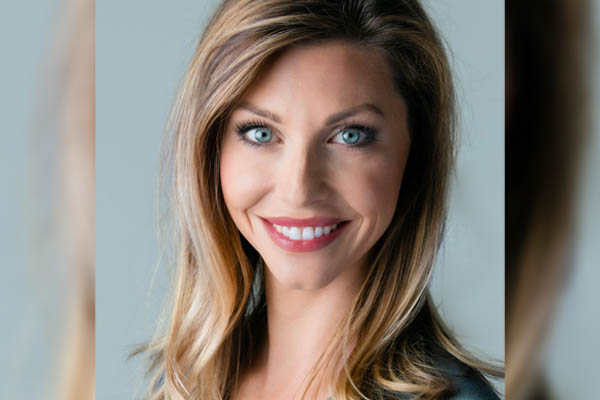
There are a lot of experts out there.
Typically it’s a telephone call or two. Now that you give me the answer, now I know.
Yes. Blood pressure goes down 30 points, and you’re like, “That was a great conversation.”
Let me ask you this. You met in college and married right after college. You started the business together. You work in the business together. You go home in the same car and handle family. You got to realize most people can’t actually get that done. It’s just too much. Have you got a secret there you would share for our couple entrepreneurs, our other power couples because it isn’t easy?
To Kyle’s point of the yin and yang, it is finding your differences in your different strengths and letting them own that. We try hard not to keep it separate because we collaborate a lot, and we’re both involved in all the aspects of the business, but we recognize we’re each other’s superpowers and let them run with that. We know when the other person needs input or help, they’ll ask for it. It’s watching your boundaries and not overstepping into what’s not your zone.
Watch your boundaries and don’t overstep into what's not your zone. Click To TweetThere’s a lot of history there too. We’ve been working together through courtship, kids, marriage, and then, with the business starting. What Maggie’s not layering in there is that she wasn’t in the business fully. I was in the business fully from day one, being the general manager, boots on the ground, flipping quesadillas.
She was supporting the business by having a job and healthcare and all those things that were important. When we finally were able to get her, this is probably four years into it, out into a full-time job at Dillas, when we could afford to bring her over as an integrator and as that full-time accounting and HR support and all that, then we started.
Since then, we have been in the same office together and learning how that relationship is going to work. It’s not like that. It was a learned thing and respecting that and having those discussions and learning. I will tell you, a big light switch went off when I went to the forum for the first time. I had a group of other entrepreneurs. I swear Maggie might remember this.
I came home and I was like, “You need a forum.” It was like a light bulb went off for me. She participates in her own forum as well and it was having those outside help, I would say. You have somebody else to go talk to about an internal business problem, not just a life problem. It has made all the difference in the world in terms of how we can do it.
Communication is the other thing. We take that very seriously. Before we worked together, we did weekly meetings for our relationship and sat down. Not in a corporate way, but a check-in every week. “How were you this week? Was there anything I could have done? Was there anything I did that upset you?” Open, honest communication, and really listening to the other person and how you affect each other.
A lot of great words in their communication, listening, boundaries, and learning. Unfortunately, a business is like a baby. It doesn’t come with instructions. You got to learn the hard way, for the most part. If I had access to the book of Gordon wisdom, what’s a golden nugget you’d share with us?
A business like a baby. It doesn't come with instructions. You have to learn the hard way. Click To TweetI would say go for it. I know that not everybody’s wired this way. It always surprises me. I’m like, “Why don’t you do this yourself?” It’s not how people work. I would encourage, from my book of wisdom, that people go for it and live life on their terms. I feel too many people are just like, “This is how it’s supposed to be or how I’ve been taught it is.”
They carry on this existence rather than taking some risks and going for it and pursuing what they want to do. That passion doesn’t have to be go out on your own and sell ice cream bars. I don’t know. It could be go out and sell instead of pounding keys in an accounting department, locked in some dungeons somewhere, and you’re miserable. I’m always surprised how many people are miserable. I would say go for it.
My sentiment is, don’t be afraid to do the work to find out what it is that you love that drives you. A lot of people don’t take the time to figure out maybe what they love to do or what their superpower is. Once you can harness what you bring the most value to, then you can find a spot to plug that into. It may not be entrepreneurism. It may be finding the key role at the right company that has a purpose that powers your vision of what you are driven towards. You got to do the work to figure out what that is. A lot of people just don’t put that effort in, so figure it out.
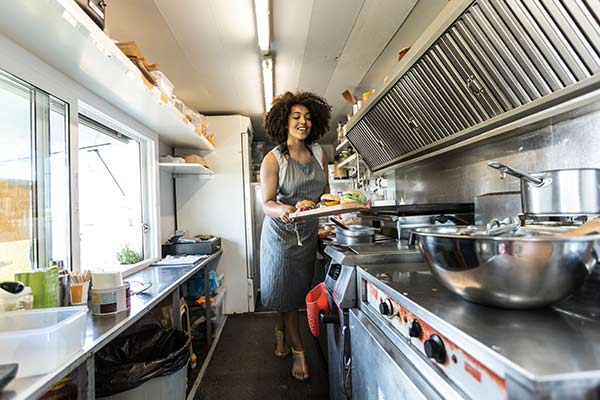
Discipline is huge. If you’re not disciplined, it’s going to be difficult for you to be able to achieve any level of success in any different medium. That would be another one. Stay disciplined.
The toughest question I’m going to ask you. I’ll put you in a time machine and take you back to your twenty-year-old self. You get about 60 seconds to tell your twenty-year-old self something you wish you knew then that you know now that would’ve made things easier, faster, smarter.
If I could talk to my twenty-year-old self, I would say, “Be confident in the vision and raise more money.”
That makes it way easier.
I’m loving that. Good counsel. How about you, Maggie?
Trust in the process. I will overanalyze things a little bit. If I knew back then to lean into what we were trying to achieve together earlier, and I know I had important roles in getting a job at certain times, but if I’d even jumped in a little bit more than I did, it could have accelerated some things if I just dove in earlier and trusted that this was going to be. I knew it was going to be something big the whole time, but I wasn’t anticipating being as much of a part of it. If I’d gotten it earlier, it would’ve been beneficial.
Yes. Both those things allude toward the fact that we’re years into a business that could have been we’re 5 or 6 years into. We spend a lot of time spinning our wheels in those first years and making those dumb mistakes and waiting too long. We were not seeking the counsel that we needed. It was like, “We’re 10 years old and we should have been here 2 or 3 years ago if we knew a couple of those little nuggets and had that extra counsel or that little bit of extra capital or the person that we added last year that we could have added 2 years ago, which is a huge difference.”
Lean into it.
That’s great sharing, but also keeping in mind, ten years in the restaurant industry is not for the faint of heart. I have so enjoyed having the power couple of the Gordons on the show. Thank you both very much. I’m grateful.
Thank you. It’s good to be here.
Thank you for your time.
That’s the episode. See you next time. Thanks.
Important Links
About Kyle And Maggie Gordon
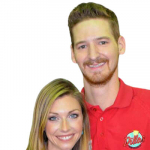 Kyle Gordon – is a dedicated husband, father, and restaurateur. He was born and raised in Austin Texas where he then attended school at the University of Texas. After school, he spent many years as a leader in the restaurant industry. Then, in 2013 he started his own restaurant concept, Dillas Quesadillas. Dillas now has 7 locations, with 10 more under contract, over 250 Team Members throughout North Texas and Louisiana and has sales trending towards 15 million dollars. In 2020 he was honored by Dallas Business Journal as a 40 under 40 recipient and by the National Restaurant News as one of the Most Influential Restaurant Executives. He’s a passionate hospitality guy with ketchup in his veins that has the vision to see Dillas worldwide. He and his wife and business partner, Maggie, have two children, Parker (13) and Grace(11), who you’ll find him spending time with when he’s not flippin’ quesadillas!
Kyle Gordon – is a dedicated husband, father, and restaurateur. He was born and raised in Austin Texas where he then attended school at the University of Texas. After school, he spent many years as a leader in the restaurant industry. Then, in 2013 he started his own restaurant concept, Dillas Quesadillas. Dillas now has 7 locations, with 10 more under contract, over 250 Team Members throughout North Texas and Louisiana and has sales trending towards 15 million dollars. In 2020 he was honored by Dallas Business Journal as a 40 under 40 recipient and by the National Restaurant News as one of the Most Influential Restaurant Executives. He’s a passionate hospitality guy with ketchup in his veins that has the vision to see Dillas worldwide. He and his wife and business partner, Maggie, have two children, Parker (13) and Grace(11), who you’ll find him spending time with when he’s not flippin’ quesadillas!
I met my husband and business partner, Kyle Gordon, at The University of Texas at Austin where I graduated with a PR degree. He had the idea for Dillas while we were in school, but we didn’t have the resources to take the leap right out of college, so we hit the real world running. I went right into Advertising while Kyle started working in the restaurant industry for a fast-growing brand. Fast forward 7 years, 2 houses and 2 kids later – Kyle was ready to start off on his own. He really spearheaded the restaurant and I helped along the way with recipes and design (I really didn’t know anything about restaurants!). Shortly after opening, I recognized he needed some help, and never looked back. We have been running the business as a Team ever since. We are 10 years in, have 4 corporate locations, 3 franchise locations and 4 more on the way. It was a slow start, we learned a lot, thrived during COVID and are now prepped for exponential growth.
For information on how to work with Don visit Work With Don Williams
You can also reach out to Don Williams at https://donwilliamsglobal.com
Please join Don and his businesses in support of St. Jude’s Children Research Hospital in its Mission to cure Childhood Cancers. You can donate to St. Jude at stjude.org/donate
